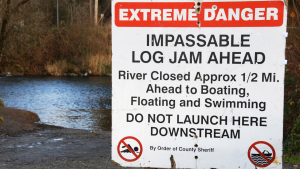It’s always good to have a plan so that you can point at it and laugh when reality has other ideas.
I thought I’d go through the rough project plan for Fieldwork so that you can see what’s involved and the sort of things I’m going to write about.
To some extent, this newsletter is as much about me working out how all the pieces of the jigsaw fit together in my own head as it is about updating you on my progress. It’s also about documenting the process and my learning, so that I can come back to check my notes and maybe even see how far I’ve progressed.
I expect to be working on these four aspects of the project, probably simultaneously:
- Background research
- Comedy research
- Script development
- Funding for production
Part 1: Background research
I want Fieldwork to be based on reality – particularly real science and real fieldwork experiences. Scientists in TV comedy and drama often end up as caricatures: tweedy, obsessive and lacking in social skills. I know a lot of scientists and none of them are like that. And I have to ask, how are we going to encourage children to take science seriously if we’re portraying scientists so poorly?
The science itself in TV is generally ignored, trivialised or misrepresented, probably because it sci-comms is hard and there are fewer TV writers with experience in sci-comms or science than we need. Thus, it gets reduced to scribbles on a white board in the background which, even if full of in-jokes for physicists (looking at you, Big Bang Theory), doesn’t do much to explain how science actually happens or why it’s important.
So I’m going to be talking to as many ecologists as I can and asking them questions about their work. I want to know what they are studying and why, where they go when they’re doing fieldwork, where they stay and what it’s like, and in particular I want to know about #fieldworkfails, those times when things didn’t go to plan. I’ve already heard about keys getting locked in cars during a thunderstorm, close encounters with bears, and the importance of choosing your tent location carefully. If you’d like to add to that list, find out how here!
Ecology is a good choice in terms of explaining how science happens and why it’s important. Many ecologists are working with species or habitats where the basics are easy to explain, and they’re doing it because they want to better manage that species or habitat, because their work will help us to grow more and better food with fewer chemical inputs, or because they want to understand the impact of climate change.
The way that a lot of ecology fieldwork is done makes it great for comedy: You’re out at a field station or camping somewhere and away from day-to-day life. Plus you’re doing things that can easily go sideways and you don’t have much time or many resources to fix the things that do go wrong. It’s just begging to become a sitcom.
This all sounds very much like I planned it this way, but Fieldwork is a part of an existing project that I’ve been working on with Prof Thorunn Helgason, Dr Pen Holland and Prof Bala Chaudhary since 2019, the International Collaboration on Mycorrhizal Ecological Traits. Our original plan was to run a workshop for about 20 international ecologists at the University of York in order to develop a design for an easy-to-build mycorrhizal spore trap, and for me to do some basic training around mentoring, which was my contribution to the project (not being an ecologist, ’n all). Unfortunately for us, our workshop was due to start the week after the first Covid travel bans came into force. Oops. We had to cancel with just a few days notice.
So Fieldwork is, in essence, our way of finishing off this project with a flourish. And I feel very lucky that the subject is ecology and not, say, nuclear physics.
Part 2: Comedy research
Back when it was “the new Rock ’n Roll”, I performed at open mic stand-up gigs, some of which actually went very well, even though the performance aspect of it terrified me. I’ve written novellas, a full-length novel, a feature film script and a six-part TV series, have trained as a TV script editor, and have a wealth of journalistic experience having written for The Guardian, Forbes, Melody Maker and a bunch of other newspapers and magazines.
What I’m doing now is building on what I already know about writing by adding the specifics of comedy. Although there are similarities between genres, there are also some aspects that are really very different, so rather than dive in and wonder why it’s not working, I’m investing my time in learning as much as I can about the form. Specifically, I’m reading everything I can about:
- Sitcom structure
- Plot
- Character
I find this all absolutely fascinating. I’ve always loved deconstructing everything I’ve watched or read (and thankfully have a husband who enjoys these conversations too), so I’m in my element.
(Just a heads up: My writing and comedy craft posts will very likely be paid posts, and they’ll sit in the Essays subsection of Word Count. All my project update posts will be free, and they’ll sit in the Fieldwork subsection.)
Part 3: Script development
This is the hard bit. But also the fun bit. And the painful bit.
I’ll be writing a script that’s between 10 and 15 minutes long, so that’s between 10 and 15 pages, as usually a page of script equals about a minute of screen time. Within those pages, I need to set the scene and have perhaps two cycles of the main character trying to fix a problem but accidentally making it worse before the final resolution. And I need to cram in as many jokes as possible.
Easy.
????
Once I’ve got a draft that’s as good as I can make it, I’ll work with a comedy script editor to hone it further before organising a table read to see how the jokes land when actual actors say them out loud. What works on the page doesn’t always work when spoken, so there will likely be rewrites at this stage.
Part 4: Funding for production
The funding we have doesn’t cover actually filming the script, so whilst all of the above is going on, I need to find a way to pay for filming. This might involve applying for grants or running a crowdfunding campaign, as well as developing the paid tier here on Substack so that I can put more of my time into Fieldwork itself.
To do all that, I’ll have to learn about film production and budgeting. I have been involved in a short film production before (and somewhere on the internet you can see me ‘acting’ in one, and no, I’m not going to link to it), but things have changed a lot since then. Much more can be done much more cheaply these days, but I have an abiding belief that people should be paid for their time, so that’s going to be the cornerstone of my fundraising. I don’t believe in asking people to work for free or “for exposure”, especially not during a financial crush, so raising enough money to pay crew and actors is a hill I am willing to die on.
The future
This project won’t stop once the short has been filmed. My plan then is to develop a script for the pilot of a half-hour ongoing sitcom and see what I can do to get it in front of producers. Because I really believe that this is a great concept and that it’s a show that could be hugely entertaining and successful.
A journey of a thousand miles begins with a single step, and this is mine. I hope you will join me to see what kind of countryside we pass through. Just make sure you pitch your tent inside the electric fence, in case of moose.
{ Comments on this entry are closed }






